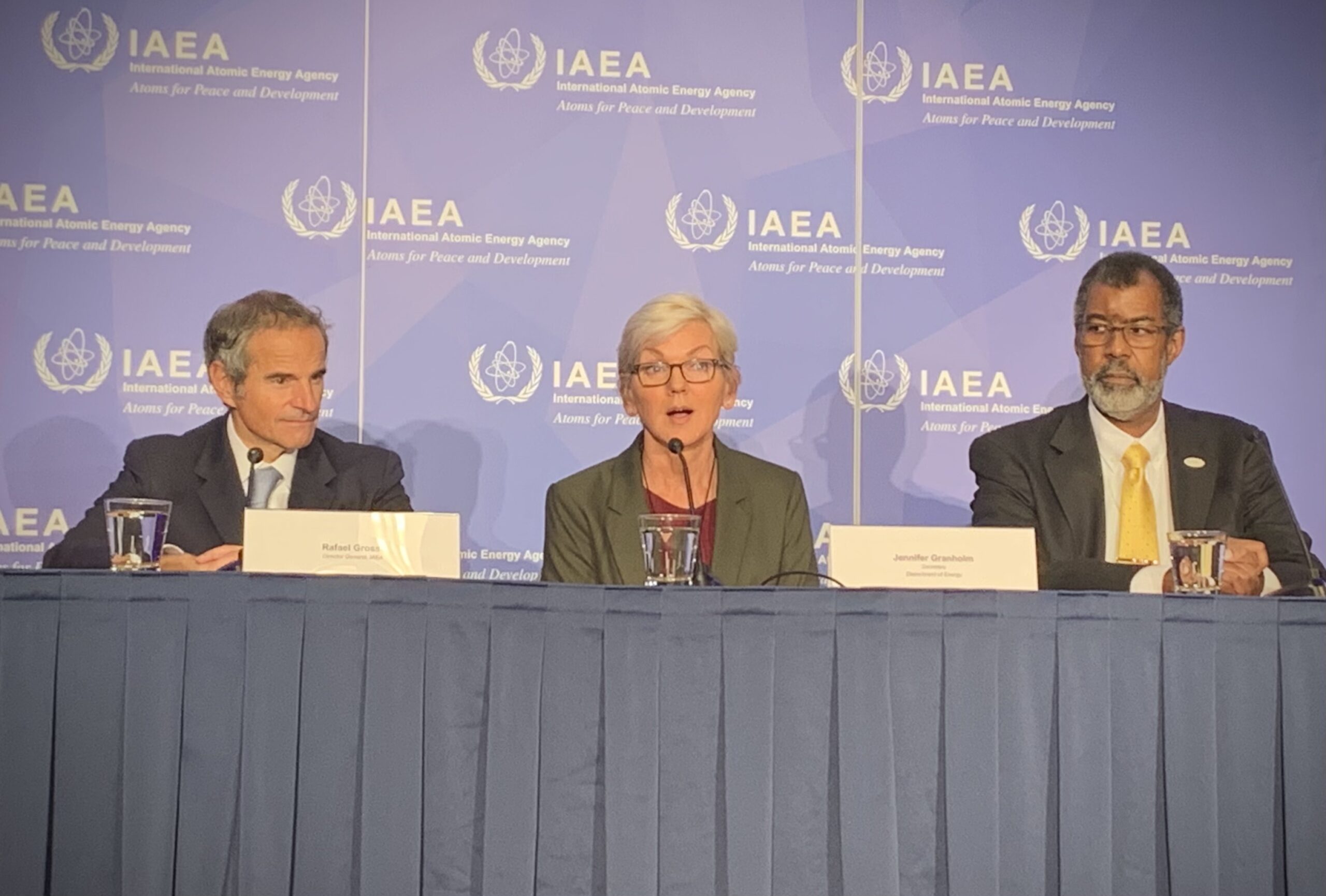
WASHINGTON — Though the government lags private industry in the development of centralized nuclear waste storage, Washington can still be part of the solution, the Secretary of Energy said here Wednesday.
“I understand that there are private efforts going on, but we believe that the government has a role in a [nuclear waste] repository as well,” Energy Secretary Jennifer Granholm told Exchange Monitor Wednesday during a press conference at the International Atomic Energy Agency’s (IAEA) annual Ministerial Conference here.
With Yucca Mountain a political nonstarter in the U.S. for more than a decade, the government has effectively ceded the task of consolidating spent fuel from nuclear power plants to private companies. Two of these, Holtec and Interim Storage Partners, have made strides in the past several years toward opening interim storage facilities in the U.S. southwest.
DOE, meanwhile, is in the very preliminary stages of seeking willing hosts for a proposed federal interim storage facility. The agency in September unveiled around $16 million in federal funding which it plans to award over the course of two years to communities across the U.S. considering playing host to the agency’s proposed interim storage site.
A senior DOE said in September that the government could open such a facility in 10 to 15 years. There are about 80,000 tons of spent nuclear fuel stored at the U.S. power plants that generated them.
“It obviously has to be demonstrated, and it can be demonstrated, that the [host] community doesn’t have to worry about safety,” Granholm said Wednesday. “Those conversations, and the education associated with that, takes some time.”
The energy secretary praised the “bottom-up” approach of nations like Finland, whose own geologic repository for nuclear waste is projected to open in 2024. “We think that is an excellent type of process to undertake,” Granholm said, adding that closing the nuclear fuel cycle is “not a process that happens overnight.”
Finnish company Posiva, which is building the repository, finished boring its first of five disposal tunnels earlier this year. In the U.S., Yucca Mountain, which was supposed to take on the nation’s entire spent fuel inventory, has only a test borehole.
IAEA director-general Rafael Grossi, speaking at the press conference, said that it was important to change public perceptions about spent fuel.
“There are a lot of perceptions about the safety of nuclear reactors and nuclear waste storage,” Grossi said. “We have never had an accident from a waste store.”
While DOE solicits potential host communities for a federal spent fuel site, at least one private company — the Waste Control Specialists-Orano joint venture Interim Storage Partners (ISP) — has gotten the necessary regulatory approvals to build its own interim storage facility in west Texas. The Nuclear Regulatory Commission approved the project in September 2021.
NRC is also reviewing an application for a similar site in New Mexico proposed by New Jersey-based nuclear services company Holtec International. The agency has said it could make a licensing decision on that proposed site by early 2023.